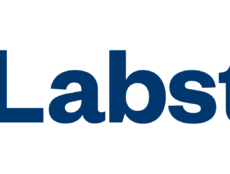
Articles
MOOCs Struggle to Meet Financial Demand of Master’s in Social Work with Varying Success
By Henry Kronk
December 02, 2017
Since their explosion in 2012, massive online open courses (MOOCs) and online degrees have stood as viable forms of education for certain subjects. Among STEM fields, and computer science particularly, many learners believe that a MOOC can replace a traditional class.
As online educators have begun to learn more about their audience, they have improved their delivery. They have also grown popular in the fields of business and management, and have demonstrated viability in diverse areas such as architecture and the arts.
Some fields, however, remain specifically MOOC-averse. This is largely apparent when it comes to social work education.
Master’s in Social Work
Online programs for social work have been around since 2002. There is no doubt that many skills can be gained from an online experience. But in a profession that requires tactful face to face interaction, the online medium may not be able to fully replicate a brick and mortar university experience.
Still, the cost of obtaining a Master’s in Social Work can be incredibly taxing.
The Master’s in Social Work (MSW), for example, at the University of Michigan is currently the top-ranked program of its kind in the U.S. 416 students currently matriculate.

The annual cost to attend this program currently stands at $25,756 for Michigan residents and $41,272 for out of state students, which is certainly well above average for a MSW program.
It is, however, currently the best. Still, a good wage for a social worker currently brings in a $45,000 salary, but professionals with only a degree on their wall and little experience might expect something more like $30,000.
What’s more, while taking the MSW at the University of Michigan, students must complete 912 hours of (probably unpaid) fieldwork. On average, students complete 228 hours per semester. Depending on the semester length, that’s well over 10 hours/week.
For many students, therefore, the costs and time commitments are prohibitive barriers. It has led students recently to organize and demand compensation for the heavy burden placed upon them.
The Promise of a MicroMaster’s
To meet this concern, the School of Social Work has partnered with edX to offer a preliminary MicroMaster’s in social work.
Anyone can enroll at no cost. To obtain a credential for completed courses, however, learners will have to pay a fee. In total, it costs roughly $1,000 in total for all credentials to compete a MicroMaster’s.
Once completed, students will have a leg up in applying to the U of M Master’s in Social Work program. It will also allow them to opt out of several classes and accelerate their degree. Still, the process is not seamless for either learners or educators.
Successfully completing an edX MicroMaster’s in social work shaves off one of four semesters and allows for significant cost savings.
Lynn Videka, the Dean of the School of Social Work, says her faculty have struggled with the online aspect. “In some sense, (MOOCs) will open a slightly new market but the flipside of that is it’s requiring us to completely rethink the rest of our program,” she said at a recent summit on academic innovation, according to the Michigan Daily.
Thomas Finholt, Dean of the School of Information, also cited concerns at the event. “How do we deal with this problem of assessing (our programs) online when so much of the pedagogical practice of my school is oriented toward experiential learning or engaged learning where people are doing field placements?” he said.
The quest for compensation for unpaid and required fieldwork is ongoing. In a recent survey conducted by Fair Labor Organizing, a subcommittee of U of M’s social work Master’s students, found that 71% of respondents juggle at least one job on top of classes and fieldwork. Only one respondent rated their mental health at 5 out of 5.
Regardless of the efforts to compensate students, the MicroMaster’s offered by edX serves as a possible solution to ease the economic burden. Still, it’s cold comfort at best. The field of online education continues to develop. With any luck, it will one day manage to serve all fields of study.









No Comments